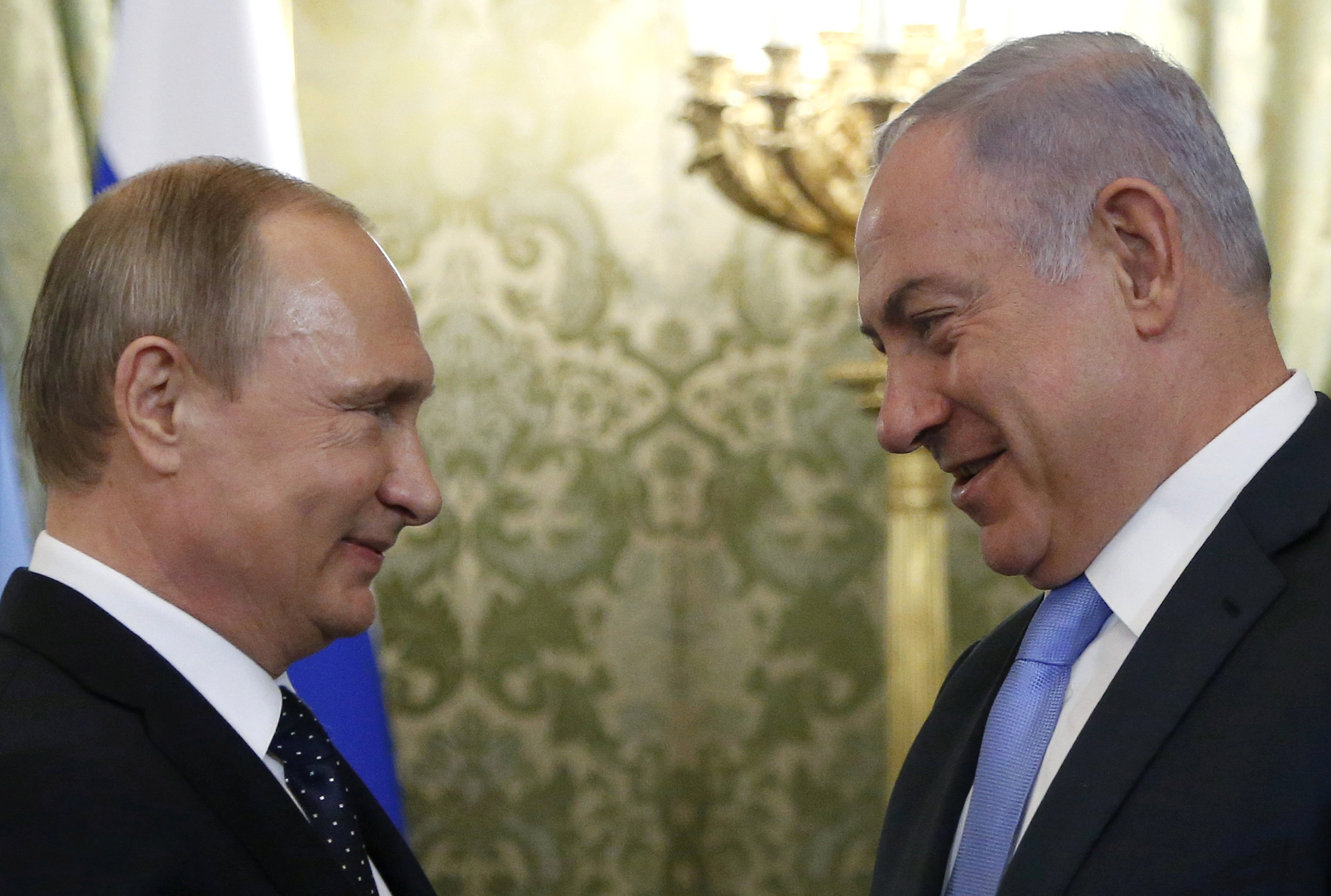Israel Wants Russia and U.S. to Know It Can Wreck Syria Deal

EghtesadOnline: Israel’s concern that Iran and its Lebanese proxy Hezbollah are working to entrench themselves militarily in Syria will dominate Prime Minister Benjamin Netanyahu’s talks Wednesday with President Vladimir Putin in Russia.
A recent truce deal the two powers brokered for southwest Syria makes no mention of ending Iran’s presence, and that’s got Israel rattled, according to Bloomberg.
Netanyahu, on the eve of his visit, said he will speak to Putin about “Iran’s accelerated attempt to establish a military presence in Syria.” He added that Iranian aggression “has not lessened in the wake of the nuclear agreement” and poses a problem not only for Israel but for the entire Middle East.
As global powers try to chart an endgame to Syria’s six-year-old civil war, current and former senior Israeli security officials say Netanyahu wants Putin and U.S. President Donald Trump to take Israel’s security concerns into account as they try to stabilize Syria. Moshe Ya’alon, who served as Israel’s defense minister during the war, said Israel may be forced to strike militarily if Iran isn’t expelled.
“We had the expectation that a deal between Trump and Putin would deal with the Iranian threat on our border,” Ya’alon said in an interview in Tel Aviv. “It’s clear that if there is no solution, in the end we might have to take action ourselves.”
Antagonizing Iran
Russia, whose military intervention turned the tide in favor of President Bashar al-Assad, will be hard-pressed to deliver a complete Iranian withdrawal. It’s relying on Iran, who is backing the same side, as one of the co-sponsors of its peace efforts in Syria, and is unlikely to antagonize it.

The Israeli army has carried out multiple strikes against Iranian and Hezbollah targets in the course of the Syrian war, but an assault on Iranian redoubts in Syria or Lebanon risks an escalation. But Israel -- which waged the loudest campaign against the 2015 Iran nuclear deal -- says it can’t stand by as the Shiite-led Islamic Republic fills the void in Syria left by the Islamic State’s retreat.
Israel accuses Iran of building military bases and carving out a land corridor to transfer arms and fighters from Tehran to Beirut. It also says Iran is building precise-munition factories in Lebanon, Hezbollah’s base.
Compromise Seen
Russia probably will try to find some kind of compromise, Russian and Israeli analysts said.
“The dominant view is that Iran is still a partner in Syria and now is not the time to sow tensions,” said Alexander Shumilin, head of the Middle East Conflict Analysis Center at the government-run Institute for U.S. and Canada in Moscow. What it might do is “let Iran strengthen its positions in western Syria,” further from Israel, he said.
Zvi Magen, a former Israeli ambassador to Moscow and now a research fellow at the Institute for National Security Studies in Tel Aviv, expects Netanyahu and Putin “will try to find a solution in which the Iranians can stay in Syria under Russian control,” with no military units and no military bases.
Longtime Enmity
Israel never accepted Iran’s assertion that its nuclear program -- temporarily curbed under the nuclear pact -- has no military component. It also has clashed over the decades with Hezbollah, which has been fighting alongside Assad since 2012 and has significantly expanded its military arsenal since its last war with Israel 11 years ago.
While Israel has labored to avoid being drawn into the Syrian civil war, it has carried out air and artillery strikes against Iranian, Hezbollah and Syrian army targets. Netanyahu recently said Israel struck Hezbollah in Syria dozens of times. Ya’alon hinted Israel also has targeted Iranian operatives.
Iran tried to orchestrate terrorist attacks against Israel in the Golan Heights, and “all those operatives are no longer alive,” he said.
Russia won’t brush off Israeli concerns because it wants to prevent a direct Israeli-Iranian confrontation that would deepen the region’s chaos, said Yossi Mekelberg, a senior consulting research fellow at the Chatham House research center in London.
“Unlike with the nuclear project, Israel actually has the capability to kill Iranian operatives in both Syria and Lebanon with quite some ease,” Mekelberg said. “The fear then becomes that both sides miscalculate to the point of direct confrontation between Iran and Israel. This is a very delicate, explosive situation.”


